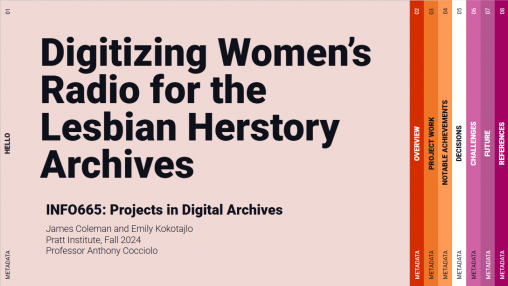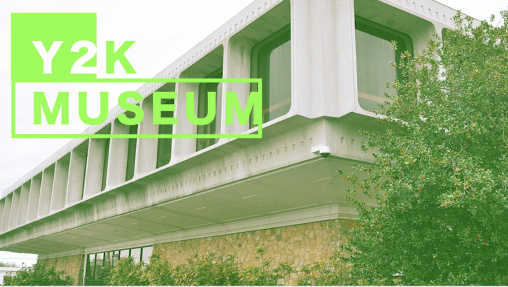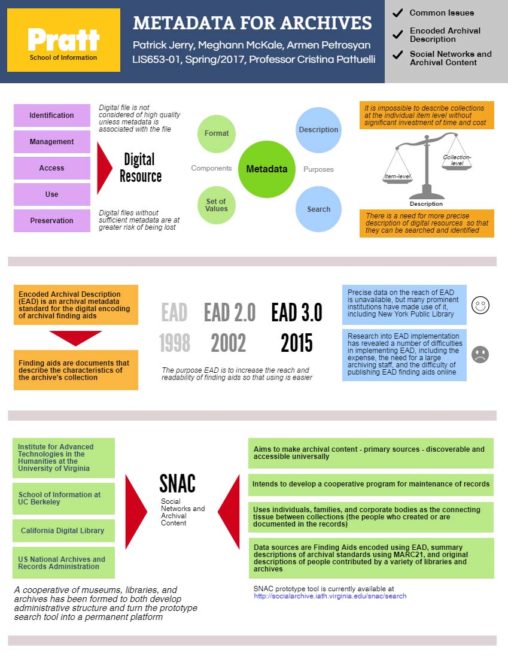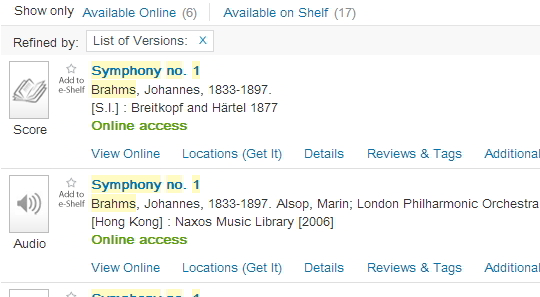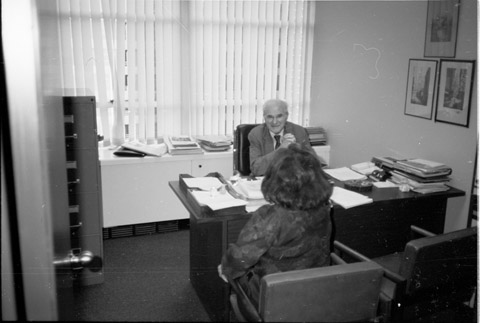Tag: metadata
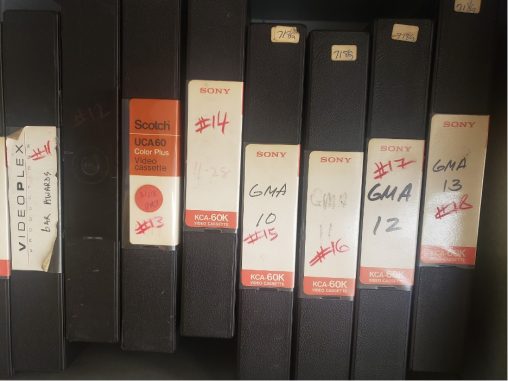
In this presentation, Julia, Janis and Eirini present on 2 LGBT history archiving efforts. The first is digitization of “Lesbian Nation,” a broadcast radio program from 1972-1974 created by Martha Shelley during the early years following the Stonewall Riots. The second is Gay Morning America, an morning TV program broadcast on public television during the early years of the AIDS epidemic. Both projects highlight challenges as well as opportunities to preserve and make accessible this broadcast content.
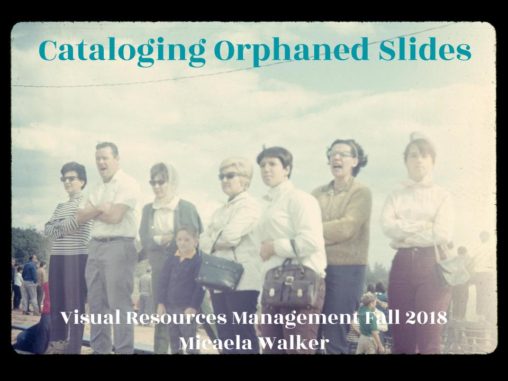
For this project, Micaela Walker obtained an orphaned set of 35mm slides from a junk store. The slides depict family photos from the mid / late 20th century and contained very little information to identify or describe them. Using strong research skills and following best practices, Ms. Walker successfully digitized and cataloged these images, effectively demonstrating what insights can be gleaned from anonymous, abandoned materials.
Conference-style presentation describing team work on a metadata application profile and metadata entry form for electronic theses and dissertations. The presentation provides an overview of the materials produced and reflection on the process/lessons learned.
Showcase-DublinCore Dublin Core, short for the Dublin Core Metadata Element Set, is an interdisciplinary metadata standard recognized by the National Information Standards Organization (NISO) and the International Organization for…
This research explores the application of embedded metadata in images and showing how it works differently in different environments both for adding and viewing the data.
